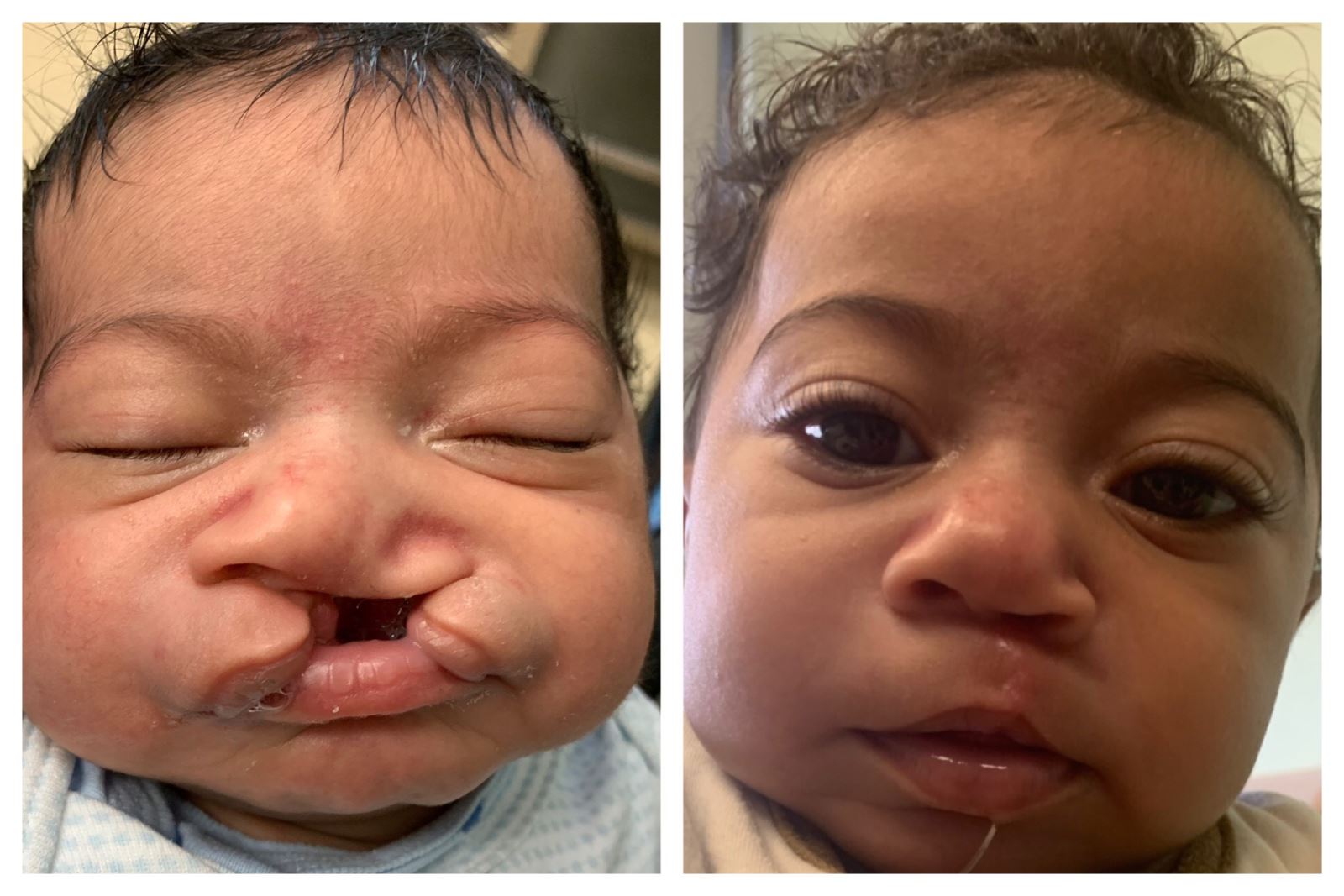Dr. Stephanie Ambrose performs corrective surgery to repair cleft birth defect
An estimated 200,000 babies are born with a cleft lip, palate or both each year in the United States. To correct the birth defect, surgery is typically the best option.
Dr. Stephanie Ambrose is the region’s only fellowship-trained pediatric ENT who performs cleft lip and cleft palate corrective surgery. The photo to the right is a recent surgery performed by Dr. Ambrose.
A cleft occurs when a baby is born with an opening in the lip or roof of the mouth (palate). Clefts form during the first six to 10 weeks of pregnancy when the soft tissues and bones of the face, jaw and mouth fail to come together normally.
Clefts can involve the lip alone, the lip and palate or the palate alone. They can vary in size and extent and can involve one or both sides of the mouth.
Usually, the cleft lip and palate are found by the pediatrician when a baby is born. Some defects may be seen on a prenatal ultrasound. Children born with cleft lip and/or palate may have problems with breathing, feeding, hearing and speech.
The cause of a cleft is not always known. Many develop due to a combination of genetic and environmental factors. There are more than 400 genes linked to formation of cleft lip and palate. Some environmental factors associated with cleft include medications, deficiency in folic acid and cigarette, drug or alcohol use during pregnancy.
How corrective surgery can help
A cleft lip is usually surgically repaired around 3 months of age. The procedure requires general anesthesia and usually an overnight stay. During the procedure, the soft tissues and muscles of the lip are closed, leaving a small scar from the upper lip to the nose.
A cleft palate is typically repaired around 12 months of age. The tissues and muscles of the soft palate are brought together to close the cleft. This procedure requires general anesthesia and usually a one to three night hospital stay. More surgeries may be needed as children grow older to improve speech, improve the appearance of the nose or to address dental issues.
Dr. Ambrose meets with families typically following a pediatrician referral; however, you can call to make an appointment if you are concerned about a cleft. Dr. Ambrose will discuss with families what to expect and a potential timeline of treatment. She also advises parents on what to monitor until the infant is ready for surgery.
If you’d like to schedule an appointment with Dr. Ambrose, you can call Georgia Ear, Nose & Throat Specialists at 912-356-1515 or request an appointment online.